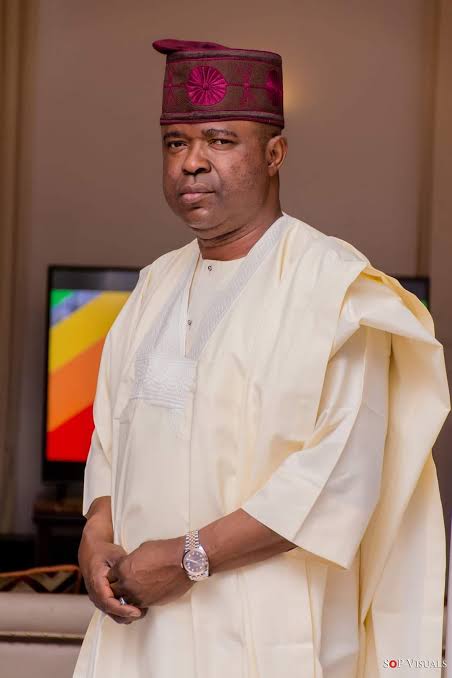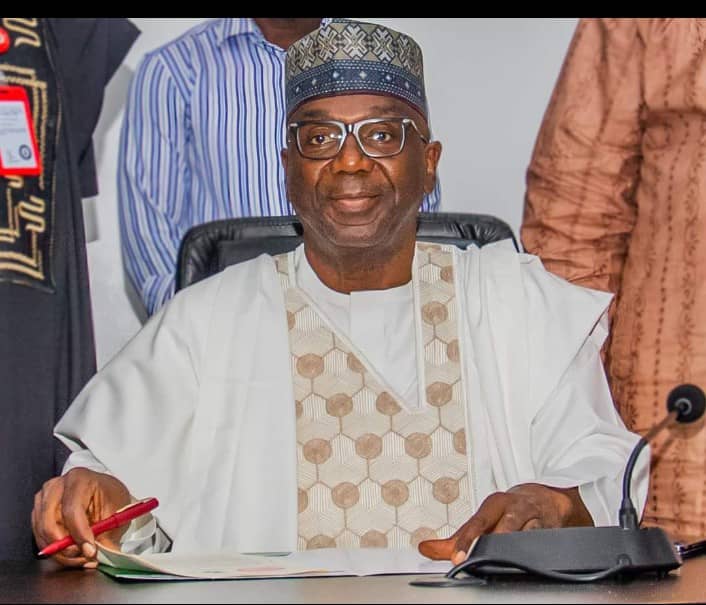By Dare Akogun
In our world today, a healthy democracy means a healthy environment and vice versa, which invariably means there exists a direct relationship between democracy and the environment.
Nigeria with the largest economy and population in Africa with a projection to overtake China to become the second most populous country after India by 2090.
Nigeria is also the world’s 17th biggest emitter of greenhouse gases in 2015, the second highest in Africa after South Africa, with the economy heavily dependent on oil and gas exports.
According to the country’s National Oil company, The Nigerian National Petroleum Corporation, NNPC, profits from petroleum exports currently account for 86 percent of Nigeria’s total export revenue, however the production of this natural resources in the country has also been linked to sharp societal disparities and environmental disasters.
Nigeria, who suffers from chronic power cuts despite millions of dollars investments also has one of the highest rates of energy poverty in the world. In its recent Covid-19 economic recovery plan, the administration of President Muhammadu Buhari pledged to fix its worsening energy crisis through the rapid expansion of solar power, but it also scrapped fossil fuel subsidies a move that has been described by experts.
However, experts are still advocating for Nigeria to close its electricity gap through the use of more fossil fuels, including the country’s largely untapped coal reserves, with the little being taped illegally and in a manner contributing to global warming.
Climate change is having a large impact on Nigeria and the extreme heat emanating from piercing increases in the weather is affecting the many millions of people without access to electricity nor cooling system and changes to precipitation threaten Nigeria’s largely rain-dependent less tapped agricultural sector.
The government has pledged to reduce its greenhouse gas emissions by 20% by 2030 as enshrined in the Paris accord endorsed in 2015, with the submission of an updated Nationally Determined Contribution (NDC) document to the United Nations Framework Convention on Climate Change (UNFCCC), but with international support this pledge can riseas high as 45%.
The document expressing ambitious pledges and actions set by countries that have endorsed the Paris Agreement in order to efficiently reduce carbon emissions, thereby preventing the devastating impacts of climate change in their respective countries.
The minister of environment, Mohammed Abubakar, while speaking on how the targets will be met said the ministry will be focusing on electricity access to all Nigerians, creating green jobs by diversifying the economy, ensuring sustainable waste recycling and clean cooking gas among others.
According to him, “We are committed to transforming our climate action plans into results by turning international discussion into pragmatic steps,” the minister said in the submitted NDC.
He added that all Ministries, Departments and Agencies (MDAs) are crucial to delivering on the pledges and essentials of the NDC in order to mobilize the international support as commanded by the Paris agreement package.
“With this spirit in mind, we will revise our implementation roadmap to reflect the expanded mitigation measures in the revised 2021 NDC,” Abubakar added.
Despite being Africa’s largest oil producer, Nigeria is in the midst of a long-term energy crisis. More than one in three people in Nigeria do not have access to electricity – and in 2018, the typical Nigerian manufacturing industry experienced more than 32 power cuts. These power cuts have led to a heavy reliance on back-up generators across the country.
In a survey conducted in 2015, it was reported that about 61 percent of Nigeria’s population consider climate change to be a “very serious problem”, with many respondents stating that “extreme heat” to be the largest of climate change’s threats.
In 2012 the Federal Executive Council (FEC) adopted the Nigeria Climate Change Policy Response and Strategy, in order to ensure an effective national response to the multifaceted impacts of climate change in the country.
For this to happen, the FEC said the country will adopt a comprehensive strategy and specific policies with the aim of fostering low-carbon emissions, high economic growth and development, and as well build a climate resilient society through the attainment of some key objectives.
These objectives include: “To implement mitigation measures that will promote low carbon as well as sustainable and high economic growth; Enhance national capacity to adapt to climate change; Raise climate change related science, technology and R&D to a new level that will enable the country to better participate in international scientific and technological cooperation on climate change.”
Others are: “To significantly increase public awareness and involve private sector participation in addressing the challenges of climate change; Strengthen national institutions and mechanisms (policy, legislative and economic) to establish a suitable and functional framework for climate change governance.”




